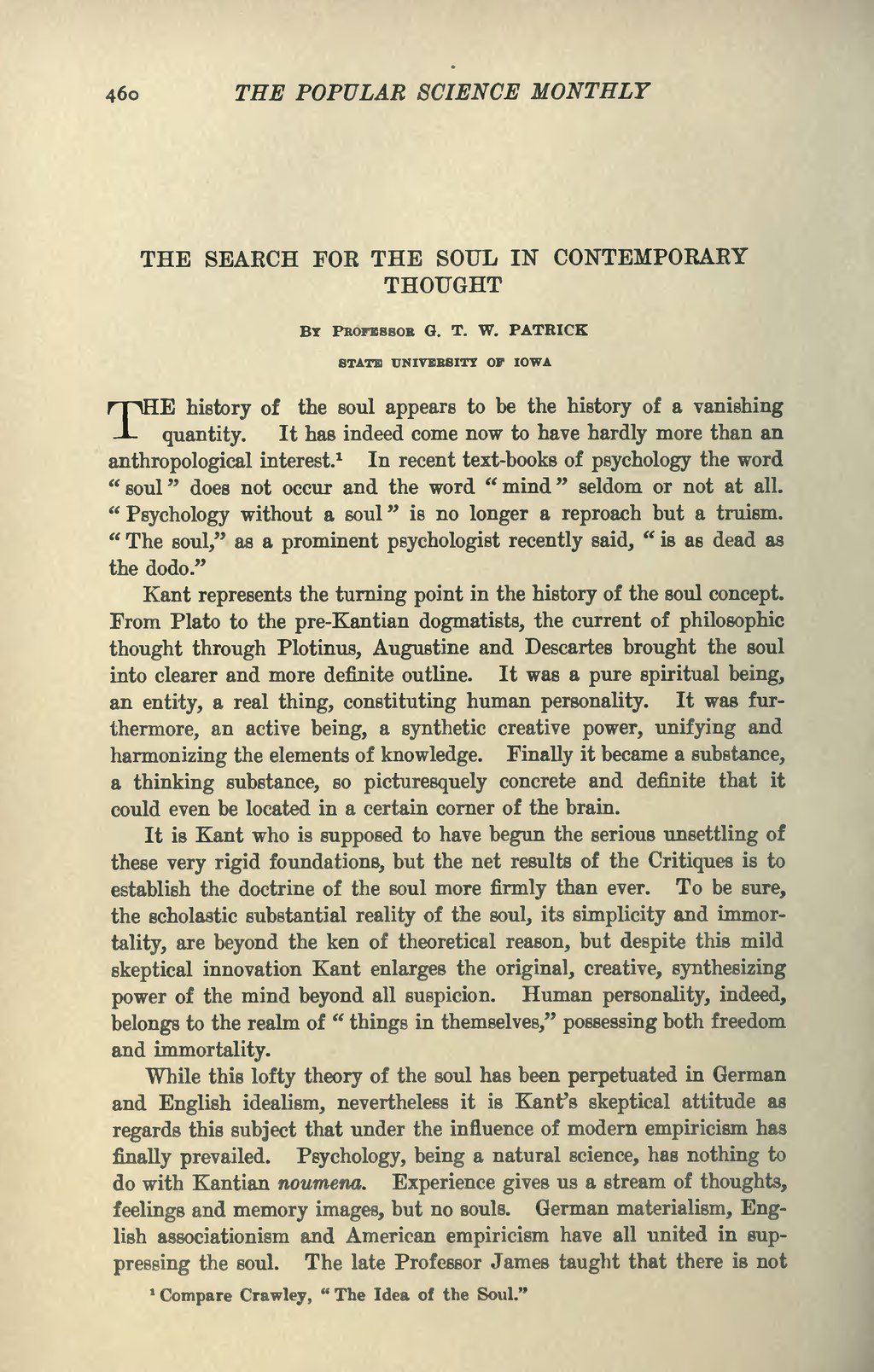| THE SEARCH FOR THE SOUL IN CONTEMPORARY THOUGHT |
BY Professor G. T. W. PATRICK
STATE UNIVERSITY OF IOWA
THE history of the soul appears to be the history of a vanishing quantity. It has indeed come now to have hardly more than an anthropological interest.[1] In recent text-books of psychology the word "soul" does not occur and the word "mind" seldom or not at all. "Psychology without a soul" is no longer a reproach but a truism. "The soul," as a prominent psychologist recently said, "is as dead as the dodo."
Kant represents the turning point in the history of the soul concept. From Plato to the pre-Kantian dogmatists, the current of philosophic thought through Plotinus, Augustine and Descartes brought the soul into clearer and more definite outline. It was a pure spiritual being, an entity, a real thing, constituting human personality. It was furthermore, an active being, a synthetic creative power, unifying and harmonizing the elements of knowledge. Finally it became a substance, a thinking substance, so picturesquely concrete and definite that it could even be located in a certain corner of the brain.
It is Kant who is supposed to have begun the serious unsettling of these very rigid foundations, but the net results of the Critiques is to establish the doctrine of the soul more firmly than ever. To be sure, the scholastic substantial reality of the soul, its simplicity and immortality, are beyond the ken of theoretical reason, but despite this mild skeptical innovation Kant enlarges the original, creative, synthesizing power of the mind beyond all suspicion. Human personality, indeed, belongs to the realm of "things in themselves," possessing both freedom and immortality.
While this lofty theory of the soul has been perpetuated in German and English idealism, nevertheless it is Kant's skeptical attitude as regards this subject that under the influence of modern empiricism has finally prevailed. Psychology, being a natural science, has nothing to do with Kantian noumena. Experience gives us a stream of thoughts, feelings and memory images, but no souls. German materialism, English associationism and American empiricism have all united in suppressing the soul. The late Professor James taught that there is not
- ↑ Compare Crawley, "The Idea of the Soul."

